Overview, Mission and Vision
Overview
Aiming to develop global leaders who are active locally
University of Fukui has consistently promoted the internationalization of education and research to foster highly specialized professionals who can succeed globally, aiming to be a university with high international comparability and steadily accumulating achievements. Leveraging these achievements, and in response to challenges such as accelerating global talent acquisition competition, the advancement of international development and online education in higher education, and a shortage of global talent in the region, the Institute for Global Engagement (IGE) was established in April 2024. This marks a shift from the conventional individual response by faculties and graduate schools to a “Region x Overseas x Co-creation” model, where students, faculty, staff, and alumni collaborate to expand their activities locally and internationally through a global management strategy.
To foster “global leaders who are active locally,” the IGE aims to establish University of Fukui’s unique leadership development program, which emphasizes leadership as being as important as language skills, by consolidating and strengthening related on-campus resources. Notably, it emphasizes gaining learning opportunities from differences through collaboration between international and Japanese students, thereby establishing a new international education model for regional national universities that often lack sufficient international exchange opportunities.
Furthermore, in the Hokuriku/Fukui region, the IGE aims to launch a platform for collaboration with higher education institutions, local governments, companies, and alumni who share the common objective of developing global leaders sought by the region and society, thereby aiming to create new value.
Department of Global Networking
- Planning and implementation of policies and measures related to the internationalization of the University
- Promotion of international exchange in education and research
- Global human resources development
- Recruitment of international students
Department of Regional Alliance
- Planning and implementation of policies and measures related to regional cooperation that contribute to internationalization
- The University of Fukui Alumni Society
- Support for international students in their studies and daily life
- Career education and domestic employment of international students
- Support for regional internationalization and promotion of multicultural society
Vision
The vision is to establish University of Fukui’s unique “Global Leader Development Model Active in the Region,” shifting to a “Region x Overseas x Co-creation” model where students, faculty, staff, and alumni collaborate and expand their activities locally and internationally through a global management strategy.
Mission
By consolidating and strengthening related on-campus resources, the IGE will develop upon conventional global talent development by deploying University of Fukui’s unique leadership development program, which emphasizes leadership as being as important as language skills. This program aims to cultivate the following types of individuals:
Desired Profile of Individuals (Objective)
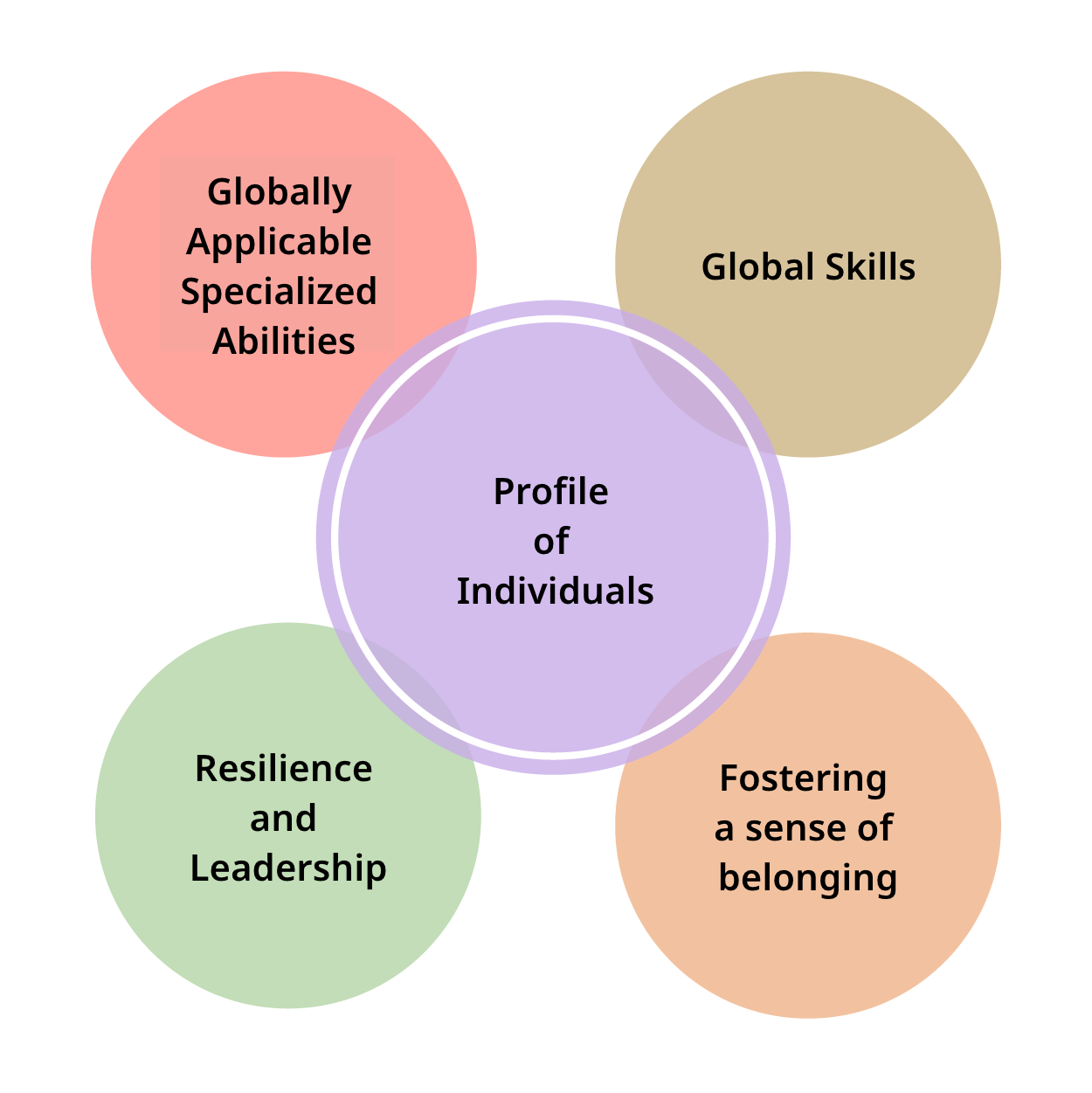
To develop individuals with globally applicable specialized abilities and global skills, who are resilient and possess leadership, while simultaneously fostering a sense of belonging.
1)Globally Applicable Specialized Abilities
- Deep knowledge in specialized fields
- Problem-solving skills
- Creativity
2)Global Skills
- Language proficiency (Japanese, English) + Communication skills
- Diversity understanding (regional and Japanese culture, diverse cultures and values)
3)Resilience and Leadership
- Confidence
- Perseverance
- Proactiveness (ability to disseminate information/ideas)
- Coordination skills
- Ability to manage and achieve results towards group goals
The mission emphasizes gaining learning opportunities from differences through collaboration between international and Japanese students, thereby establishing a new international education model for regional national universities that often lack sufficient international exchange opportunities. To achieve this, the IGE aims to increase the number of outstanding international degree-seeking students, strengthen the acceptance and support system to enhance their satisfaction, and promote their retention in Japan. This is intended to contribute to global expansion and innovation creation in the region, as well as the realization of a multicultural society.
Promotion Strategy
The core initiative of the IGE, “Construction of a Global Leader Development System Active in the Region,” aims to establish a region-co-creation type global management system. Specifically, in the Hokuriku/Fukui region, it seeks to launch a platform tentatively named “Fukui Alliance” for collaboration with higher education institutions, local governments, companies, and alumni who share the common objective of developing global leaders sought by the region and society, thereby aiming to create new value.
Departments
The Institute for Global Engagement has two important departments that drive the internationalization of University of Fukui.
Department of Global Networking
The Department of Global Networking plays a central role in strengthening and elevating the University of Fukui’s international presence to a global level. Based on the university’s mid-to-long-term vision for internationalization, it plans and implements individual projects. Specifically, it is responsible for creating new collaboration opportunities with universities and research institutions worldwide, and expanding international education and research networks through the promotion of joint research and student exchange programs.
Furthermore, it actively promotes the appeal of the University of Fukui to the world and focuses on recruiting excellent international students from diverse backgrounds globally. In addition, it is involved in the development, implementation, and expansion of educational programs (UF-GLP: University of Fukui Global Leadership Program) aimed at fostering human resources who can thrive rooted in the local community in a future global society.
Department of Regional Alliance
The Department of Regional Alliance plays a crucial role in deepening collaboration with local communities from the perspective of internationalization, contributing to Fukui’s development into a multicultural symbiotic society. This department plans and implements collaborative initiatives that connect local communities with the international society, thereby supporting the internationalization of the entire region. Specifically, it dispatches international students to international exchange and intercultural understanding events held by local international exchange organizations at daycares, elementary and junior high schools, and community centers. Furthermore, to enable international students who studied at University of Fukui to maintain ties with the region even after graduation, it actively supports alumni activities.
Additionally, by providing meticulous learning and living support, this department helps international students smoothly adapt to life and studies in Japan, creating an environment where they can concentrate on their studies with peace of mind. Moreover, focusing on career development after graduation, it strongly supports the settlement of international students in Japan by providing internship opportunities in collaboration with companies and offering job placement support within the country. Through these activities, the department contributes to Fukui Prefecture becoming an international and attractive region.
Message from the Director
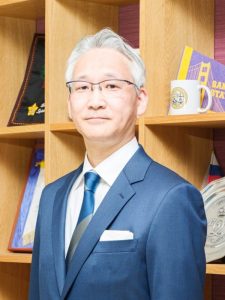
I am Takahiro Nagai, Vice President for International Affairs and Global Strategy, and I have been appointed as the Director of the University of Fukui Institute for Global Engagement (IGE). I arrived at the University of Fukui in October 1998, specializing in Chinese Studies and East Asian Cultural Interaction Studies, and have been primarily involved in the university’s international exchange activities. Until last year, I served as Assistant to the President for International Affairs, Deputy Director of the Institute for Global Engagement (IGE), and Chair of the Study Abroad and International Students’ Committee of the School of Global and Community Studies.
The University of Fukui Institute for Global Engagement (IGE) is a university-wide organization that aims to promote the internationalization of education and research in collaboration with the university’s departments and joint research facilities, as well as to develop global leaders who will be active in the region. It was established in 2024 to strengthen the functions of the Global Advancement Organization, which was established in 2016. This institute includes the Center for Global Education and Research (GER), which conducts education and research in languages and global leadership.
Universities, including the University of Fukui, are “academic (学術)” institutions, but in traditional China there was a clear distinction between “liberal arts (学),” which are universal studies, and “practical techniques (術),” which are acquired by specialists in special fields such as military science, astronomy, and medicine. Today’s universities are places where students and faculty members pursue both “liberal arts” and “practical techniques” without distinction, and the fields in which they work are not only domestic but also expanding overseas. In addition, events around the world are affecting our lives in real time. In this era of borderless globalization, it has become indispensable for everyone living today, not only those who are active in universities, to have a global perspective and thinking. In order to live robustly in a world where conventional wisdom is no longer applicable, it is necessary to boldly break the boundaries of each individual’s conventional wisdom, habits, and thinking, and to see things from a broader, multifaceted perspective. As one of the ways to achieve this, we believe it is very important and useful to dive into different cultures and to be stimulated by interacting with people who speak different languages and cultures and have diverse ways of thinking.
I hope that everyone at our university will live an exciting and bright life full of challenges. I hope that everyone will be able to think of global events as personal matters. I hope that everyone will experience a new world that they have never seen or heard of before. We are here to help to make that happen. And I hope that you will contribute to the development of the region and the world by becoming global leaders who will pioneer the future of people and society through our university’s philosophy of “Kakuchi (格致)”.
In the region, we would also like to play a role as a hub for the globalization of the region and for “All-Fukui” unity, where the region becomes one by strengthening cooperation. There are numerous complex and diverse challenges in the region related to globalization and international exchange. These issues are difficult for universities or single institutions or organizations to resolve alone, and we believe that mutual support is necessary. We hope to collaborate with various organizations to build a Fukui model in which we can draw on each other’s strengths and compensate for each other’s weaknesses to solve problems and work together for the future of the region and the world.
Together with the Center for Global Education and Research (GER), our education and research division, we hope to continue to be well known, loved, and fully utilized by everyone on and off campus. We look forward to your continued support and cooperation.
Director of the Institute for Global Engagement
Takahiro NAGAI
History
April 2000
International Student Center established (internal measure).
April 2003
International Student Center established (Ministerial Ordinance facility).
April 2011
Language Center established.
October 2012
“GLOBAL HUB”, an affiliated facility of the Language Center, opened.
April 2013
International Center established (developed and reorganized from the International Student Center).
“Language Development Center (LDC),” an affiliated facility of the Language Center, opened.
April 2016
International Center (国際交流センター) renamed to International Center (国際センター).
Global Advancement Organization established to strengthen cooperation between the International Center and the Language Center.
March 2018
Department of Japanese Language Education and Department of English Education established through integration with the International Education Department of the International Center.
September 2021
Student Central completed.
April 2024
Institute for Global Engagement and Center for Global Education and Research established.
Organization
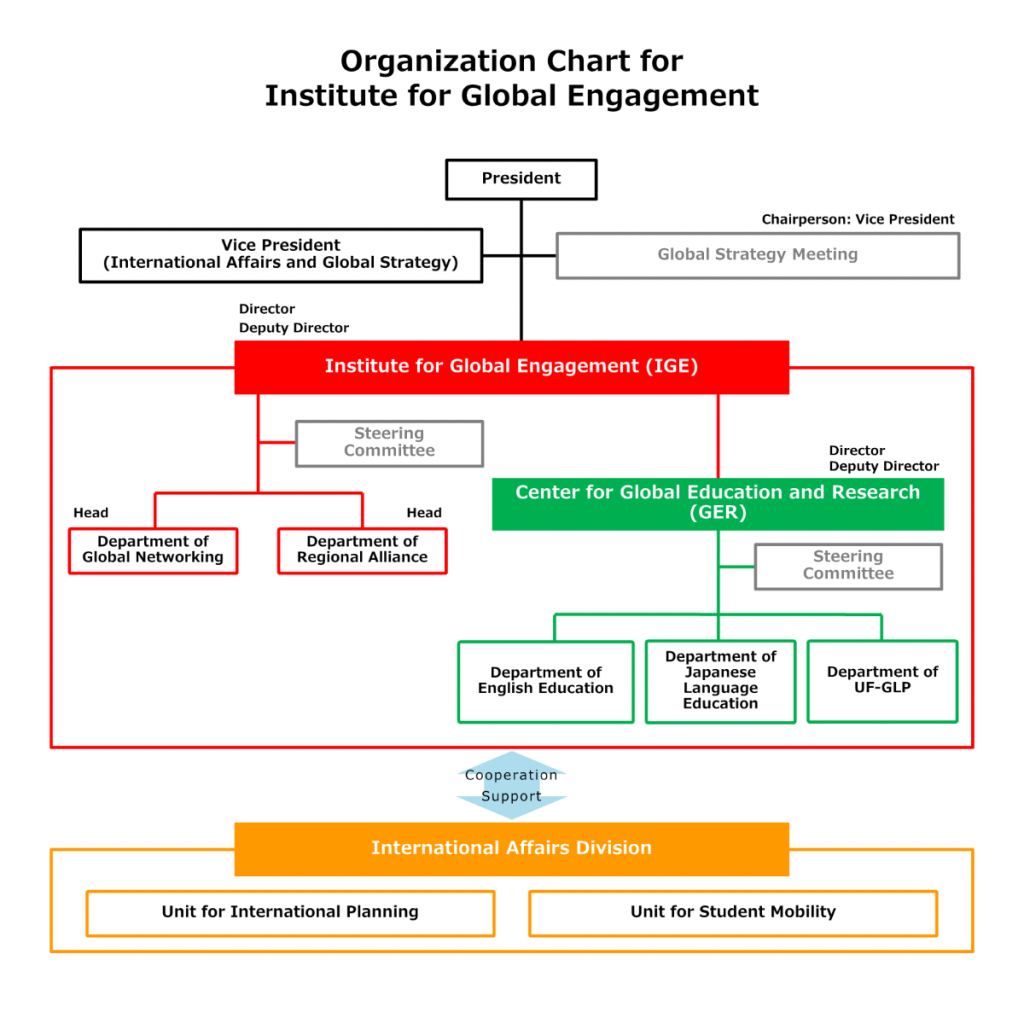
Instructors
Institute for Global Engagement
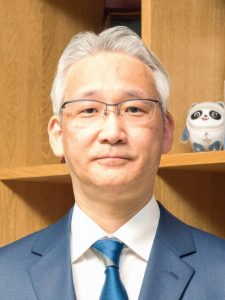
Director
Vice President for International Affairs and Global Strategy
Prof.
Takahiro Nagai
Research Map Researcher Information
Field of Expertise / Interest
Chinese Lingustics (Modern Chinese), Study of Cultural Interaction in East Asia (The Eastern Expansion of Christianity and Bible translation)
Message
I am interested in the vocabulary and grammar used in
Chinese-language literature written by modern Western
authors. In particular, I am fascinated by the ways in which
the Bible has been translated into Chinese.
As an undergraduate, I participated in a short-term study
abroad program in Beijing, and as a postgraduate student,
I studied in Shanghai as an advanced student. Studying
abroad not only provides academic opportunities but also
allows you to grow personally through exposure to different
cultures. I encourage you to take the brave first step to study
abroad in various countries and regions during your student
years, whether for a short or extended period.
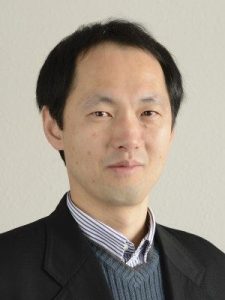
Deputy Director
Prof.
Koji Nakane
Research Map Researcher Information
Field of Expertise / Interest
Development of Organic-Inorganic Hybrid Materials and Functional Fibers
Message
Fukui is a city rich in nature, with friendly people and a great place to live. I hope you will come to love Fukui after studying at University of Fukui.
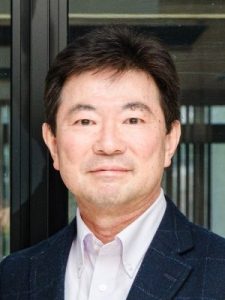
Head of Department of Global Networking
Prof.
Kazuhisa Shimada
Research Map Researcher Information
Field of Expertise / Interest
International politics in ASEAN, Local resilience, Global leadership
Message
In your university ilfe, it is important to nurture knowledge and skills which the globalised world needs you. Although you feel it might be so hard to be globalised, it might be easier for you to do than to expect. Just do it what you want. Don’t hesitate to study abroad. Then, feel what you need to acquire, and keep polishing youself.
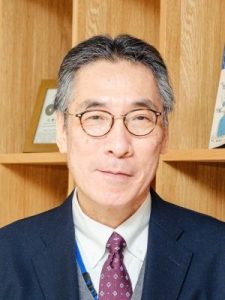
Head of Department of Regional Alliance
Prof.
Yoshinobu Torao
Field of Expertise / Interest
Teaching Japanese language for non-native speakers, Japanese Phonetics, Japanese Phonology, Cross-cultural understanding and communication
Message
I am in charge of not only Japanese language classes in the faculty of engineering, but also international students’ daily life support (especially, in case of sickness or police related matter and accident), career guidance, job-hunting support, etc.. So, please feel free to contact me any time.
Center for Global Education and Research
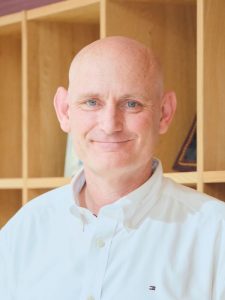
Director
Prof.
Dylan Jones
Research Map Researcher Information
Field of Expertise / Interest
Curriculum Studies, Teacher Development, English Education, Communication, Literature, Authentic Materials, Comparative Cultures, Interculturalism, Global Education
Message
We heartily welcome students to the University of Fukui’s Institute for Global Engagement and Center for Global Education and Research. Having lived in various countries, I am a huge believer in the power of international education and intercultural interaction: developing our identities, values, and critical-thinking skills and broadening our perspectives and horizons through reconceptualizing our understandings and appreciating diversity. We have various instructors, administrators, and students here who embody and enact such diversity, and our university provides many opportunities for intercultural interaction and learning: in classes and activities on campus and in the local community and through study-abroad programs. We hope that you will participate actively and grow to be an upstanding, knowledgeable, and skilled citizen of the world. Go for it!
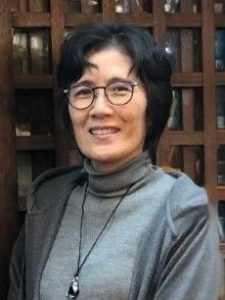
Deputy Director
Assoc. Prof.
Yoko Kuwabara
Research Map Researcher Information
Field of Expertise / Interest
Education of Japanese Language as a Second Language, Analysis of Reading Process
Message
My research theme is to clarify the difficulties in learning Japanese as a second or foreign language and what kind of support is necessary to overcome these difficulties. I am particularly interested in reading comprehension support and am conducting a long-term study of learners’ reading comprehension process.
To international students, let’s enjoy studying Japanese together. To native speakers of Japanese, if you are interested in supporting Japanese language learning, please visit my office.
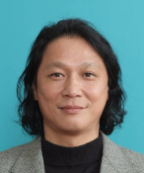
Snr. Asst. Prof.
Yojiro Hemmi
Field of Expertise / Interest
English: Second Language Acquisition, Applied Linguistics, TOEFL, TOEIC Test Preparation
Education: Cross-Cultural Communication, Leadership Development
Physical Education: Sports physiology (Core Exercise, Muscular Endurance, Blood Lactic Acid, Muscle Fiber Regeneration), Coaching Science
Medicine: Sports Medicine (Acute Sports Injuries, Chronic Sports Injuries and their Prevention/Palliative Care)
Message
Many people have probably experienced something like this: “Even though I’ve studied vocabulary and grammar quite a bit, when it comes to actual conversation, English doesn’t come out. Despite studying English for years, conversations end with just ‘Yes,’ ‘No,’ or ‘Thank you.’” During your time at Fukui University, let’s transform the “knowledge of English” you’ve cultivated so far into “usable English” by repeatedly outputting it in order to become proficient English speakers.
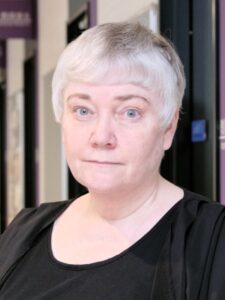
Snr. Asst. Prof.
Laura Kobata
Field of Expertise / Interest
English Literature, Asian American Literature, Composition, Gender and Identity Studies, Communicative English
Message
In today’s global economy, the intersection of different disciplines and skills has produced a multitude of opportunities for students to expand and deepen their knowledge in a variety of fields. As an instructor, my main goal is to help students acquire the linguistic and critical thinking skills that will help them succeed in their future endeavors–as contributing members of both their local communities and as global citizens.
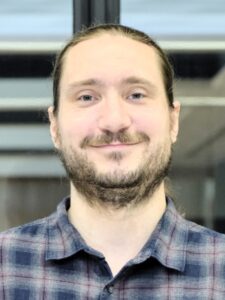
Asst. Prof.
Richard Eccleston
Field of Expertise / Interest
EFL self-directed learning, videogames in language education, materials development, communication, motivation
Message
In and out of the classroom, I am dedicated to students’ English education. I not only try to increase motivation, but increase students’ willingness to attempt communication, regardless of proficiency, by reminding them that it is okay to make mistakes. Making mistakes can help language learners improve their fluency and accuracy. I use my own experience of learning Japanese as an example. Also, it is important for me that students enjoy English classes, to maintain and increase class participation, so I try to create a fun and interactive environment for language learning and practice.
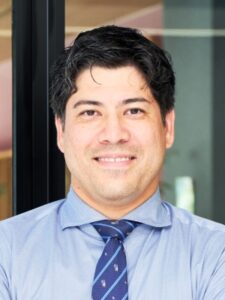
Asst. Prof.
Keith Ikoma
Research Map Researcher Information
Field of Expertise / Interest
Education, Learner motivation, ESL action research, Narrative inquiry, English Literature, Christian theology
Message
English education is a chance to learn practical skills for work, in society, and as global citizens. I hope I can help students meet their learning needs, have a space to enjoy communicating in English, improve self-expression skills, develop confidence in English, and increase their motivation for language learning and use in the future.
My advice to my students: please remember, English classes are YOUR classes, not my classes.
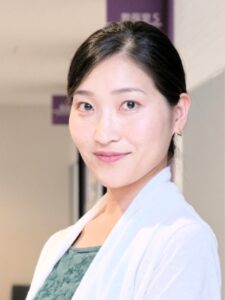
Asst. Prof.
Emi Hennessy
Research Map Researcher Information
Field of Expertise / Interest
English as a Foreign Language, Bilingualism as a First Language, Intercultural Coexistence and Intercultural Education
Message
I am interested in language acquisition and education for learners studying English as a foreign language, as well as research on language acquisition and development in multilingual environments, particularly for children. I am also interested in practical efforts towards intercultural community building.
Having studied English as a foreign language like many Japanese students and utilized it as a tool in the society, I aim to create English classes that connect us to the world and expand opportunities for future endeavors. Let’s work together to create classes where we can grow by learning from each other!
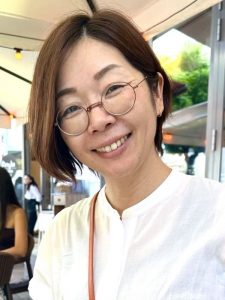
Assoc. Prof.
Aya Sato
Research Map Researcher Information
Field of Expertise / Interest
Japanese language education, Career development
Message
When you come to the University of Fukui, you will not only study the Japanese language, but also meet many new people and have plenty of fun. I hope that your experiences in Fukui will enrich your life.
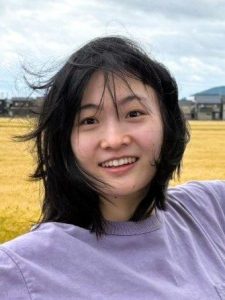
Snr. Asst. Prof.
Jingyi Li
Field of Expertise / Interest
Teaching Japanese as a second language, Second Language Acquisition, Psycholinguistics
Message
I study how people who learn Japanese as a second language understand spoken Japanese and what methods or skills can help them remember words and sentences more effectively. I try to find the reasons behind the difficulties learners face and give clear, evidence-based explanations.
Learning Japanese is not just about language. It is also a way to learn about Japanese culture and society. Through language study, learners can make new discoveries. Meeting people from different language and cultural backgrounds is also an important step for personal growth.
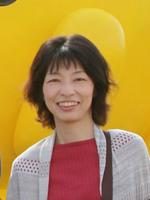
Part-time Instructor
Chiemi Ono
Field of Expertise / Interest
CLIL, Course Design
Message
Hello to everyone who is considering studying abroad in Fukui.
By learning Japanese, you can broaden your horizons by experiencing the cultures and ways of thinking of other countries and regions.
We hope you will learn many things in Fukui, a city rich in nature.
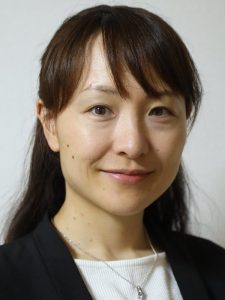
Part-time Instructor
Tomoyo Ogata
Field of Expertise / Interest
Japanese Language Education, Japanese for Care Worker Training, Japanese–Chinese Interpreting and Translation: Theory and Practice
Message
I have taught Japanese in both Taiwan and Japan.
Studying interpreting and translation reminded me that intercultural communication requires not only language skills, but also an understanding of culture and customs.
This perspective shapes how I teach Japanese today.
Language learning expands our world and helps us reflect on ourselves and our culture.
I look forward to supporting your Japanese learning journey.
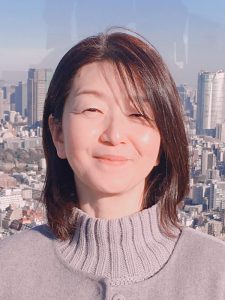
Part-time Instructor
Masumi Saito
Field of Expertise / Interest
Teaching Japanese as a second language
Message
Welcome to Fukui, international students!
The University of Fukui is rich in nature and offers a calm environment for learning. Here,I hope you not only learn Japanese but also experience many different cultures.
Exchanging ideas about different cultures is something I truly enjoy. I’m looking forward to meeting each of you. I hope your study abroad experience will be a fruitful and meaningful one.
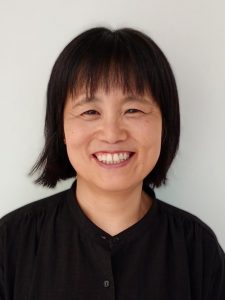
Part-time Instructor
Yukie Sawazaki
Field of Expertise / Interest
Japanese Education
Message
Welcome to Fukui, everyone!
There are many different reasons you may have become interested in the Japanese language—such as Japanese history, anime, or food. Learning Japanese can be challenging, but I encourage you to actively use the language not only in class but also around campus and in the community to improve your skills. If you have any questions, please don’t hesitate to ask me.
Let’s enjoy studying Japanese!
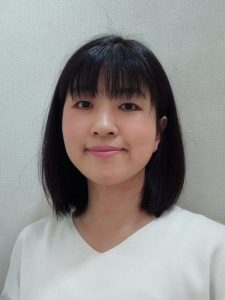
Part-time Instructor
Maki Yamada
Field of Expertise / Interest
Communication, Grammar, Intercultural Coexistence
Message
If you can talk in Japanese, it’s going to be more fun!
Let’s enjoy studying together.
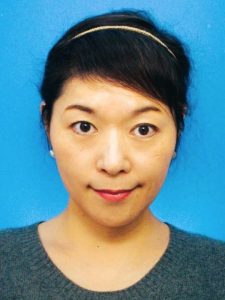
Part-time Instructor
Nana Kotani
Field of Expertise / Interest
I am interested in Japanese language education and teaching method for learners such as international students, children, and refugees
Message
I believe that learning a new language is not only a chance to learn about a country’s history and culture, but also an opportunity to get to know people and to encounter new people and new things.
Through studying Japanese, I hope you will deepen your interests and discover many new opportunities.
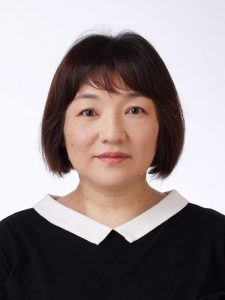
Part-time Instructor
Satoko Takinami
Field of Expertise / Interest
Japanese Education
Message
Hi, everyone!
In my classes, I aim to teach students how to use Japanese language skills to help them live in Japan.
I hope that learning Japanese will open the door to a new world for you.
Let’s have fun learning Japanese together.
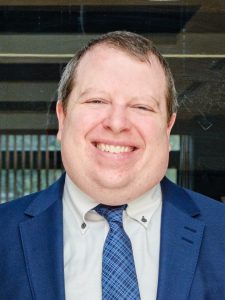
Snr. Asst. Prof.
Peter Clynes
Research Map Researcher Information
Field of Expertise / Interest
EFL, ESL, IELTS Preparation, Global Leadership, Gaming in Education, Conversation Analysis
Message
I believe that learning languages should be fun. You have already learned a lot of English in school, so let’s practice using it in practical ways. I want you to be able to use your English to connect to people around the world, interact with your favourite social media influencers, have fun playing games, and be confident using your skills.
Access
Institute for Global Engagement
International Affairs Division
UF Student Central 1F (Campus Map No.15), Bunkyo Campus, University of Fukui
Access to University of Fukui Google Maps
Contact Information
Institute for Global Engagement
| Director | (Vice President for International Affairs and Global Strategy) Prof. NAGAI, Takahiro |
|---|---|
| Deputy Director | Prof. NAKANE, Koji |
| Head of Department of Global Networking (Promote international exchange, global human resource development, and recruitment of international students) | Prof. SHIMADA, Kazuhisa |
| Head of Department of Regional Alliance (Offer advice on student life and job-hunting for international students/Promote activities for international exchange and Alumni Society) | Prof. TORAO, Yoshinobu Email: ytorao@u-fukui.ac.jp TEL/FAX: +81-776-27-8903 |
International Affairs Division
| Institute for Global Engagement | TEL: +81-776-27-9870 |
|---|---|
| Academic exchange agreements Support for international researchers | TEL: +81-776-27-8599 |
| Support for international students | TEL: +81-776-27-8406 |
| Support for students studying abroad | TEL: +81-776-27-8404 |
Campus Map
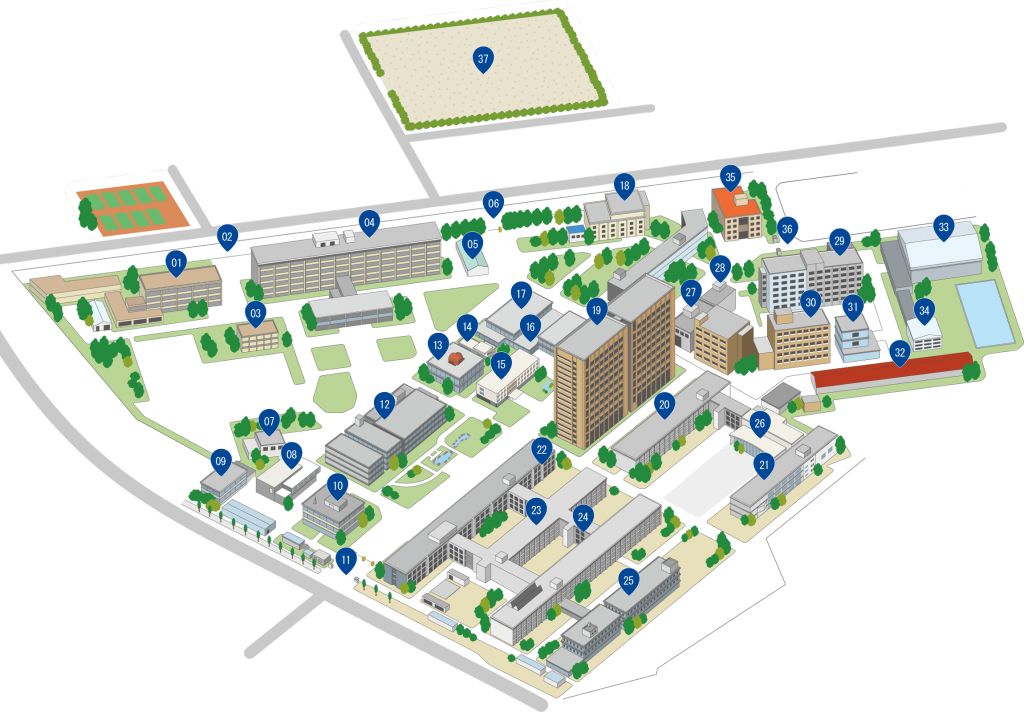
- 01. Education and Global & Community Building No.3
- 02. North Gate
- 03. Headquarters for General Professional
Development of Teachers - 04. Education and Global & Community Building No.1
- 05. Multipurpose Hall
- 06. Side Gate
- 07. Health Administration Center
- 08. Academy Hall
- 09. Makishima House
- 10. Administration Office Building
- 11. Main Gate
- 12. University Library2F Language Development Center (LDC)
- 13. Center for Information Initiative (CII)
- 14. KODACHI PARK
- 15. UF Student Central1F International Affairs Division / Institute for Global Engagement / Center for Global Education and Research / ★SEIREN GLOBAL HUB
2F Career Support Division / Career Center
3F Admissions Division / Admission Center - 16. ATM
- 17. Student Service Center1F Food Service and Stores
2F Bookshop / Educational Division / Student Affairs Division
- 18. Lecture Hall
- 19. Science Tower I
- 20. Engineering Building IV-1 (Bldg. No.2)
- 21. Engineering Building IV-2 (Experiment Bldg.)
- 22. Accounting Division
- 23. Engineering Building III (Bldg. No.1)
- 24. Satellite Shop Comet
- 25. Engineering Building VIII (Bldg. No.4)
- 26. School of Engineering Centennial Hall
- 27. Headquarters for Innovative Society-Academia Cooperation / Headquarters for Regional Revitalization1F Division for Research Promotion
3F Division for Regional Cooperation Promotion - 28. Center for Co-Creative Future Textile
- 29. Engineering Building VII (Bldg. No.3)
- 30. Engineering Building II (Research Center for Development of Far-Infrared Region)
- 31. Cryogenic Laboratory
- 32. Center for Innovative Research and Creative Leading Education
- 33. Gymnasium I
- 34. Gymnasium II
- 35. Extracurricular Activities Building
- 36. East Gate
- 37. Ground




